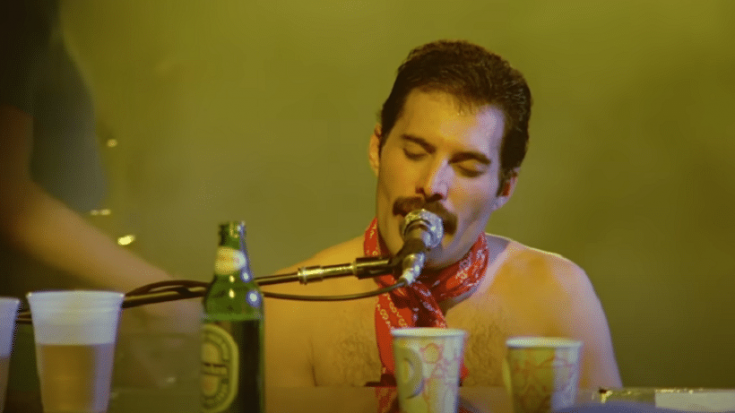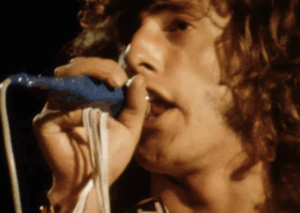10 Incredible Classic Rock Comeback Stories

via Queen Official/YouTube
We’ve picked ten of the most incredible comebacks in the history of classic rock with each legendary band and artist showing their enduring appeal. Here are ten of the most remarkable comeback stories in music:
10. AC/DC
AC/DC’s comeback is one of the most legendary in music history. In 1979, their album Highway to Hell gave them massive success and rock legend status. Unfortunately, tragedy struck in February 1980 when lead singer Bon Scott died from alcohol poisoning. But despite this devastating loss, the band pressed on with encouragement from Scott’s parents. Just months later, with new frontman Brian Johnson, they released Back In Black in July 1980, a tribute to Scott that became one of the best-selling albums of all time.
9. Deep Purple
Formed in 1968, Deep Purple went through numerous lineup changes, but one stood out: the Mark II formation. This lineup produced iconic albums like Deep Purple In Rock (1970), Fireball (1971), and Machine Head (1972), which included classics like “Smoke on the Water.” The rock group disbanded in 1976 because of internal conflicts but made a comeback in 1984 with the Mark II lineup, releasing Perfect Strangers.
8. Queen (Live Aid 1985)
Queen’s performance at Live Aid in 1985 is often regarded as one of the greatest live performances in history. Held simultaneously in Philadelphia and London, Live Aid was watched by 1.9 billion people across 150 countries. Queen’s electrifying set, which came shortly after Freddie Mercury’s first solo album, became a defining moment for the band, showcasing the band’s unmatched stage presence and musical prowess.
7. The Who (Live Aid 1985)
The Who disbanded in 1983 after nearly 20 years of rocking the stage, but they reunited in 1985 for the historic Live Aid concert. The event, aimed at raising funds for famine relief in Ethiopia, brought the band back together where fans witnessed once again their explosive energy on stage.
6. Bad Religion
Bad Religion, an iconic American punk band, had a rocky start. Their debut album, How Could Hell Be Any Worse? (1982) was well-received by the public. However, their second album, Into the Unknown (1983), was a flop which led to the band’s dissolution. However, they regrouped in 1988, releasing Suffer, the album that marked their comeback and is now considered a punk classic.
5. Lynyrd Skynyrd
Lynyrd Skynyrd faced tragedy in 1977 when a plane crash claimed the lives of three band members just days after releasing Street Survivors. The surviving members disbanded but reunited ten years later for a tribute concert. The success of the concert led to the band’s decision to continue, and in 1991, they released Lynyrd Skynyrd 1991.
4. John Frusciante
John Frusciante, guitarist for the Red Hot Chili Peppers, struggled with heroin addiction, leading him to leave the band in 1992. His departure came after the success of Blood Sugar Sex Magik (1991). After years of battling addiction and releasing solo work, Frusciante entered rehab in 1998 and rejoined the band. His return marked a new era for the Chili Peppers, with the release of the critically acclaimed album Californication in 1999.
3. Iron Maiden
Iron Maiden’s most iconic lineup included Bruce Dickinson on vocals, who left the band in 1993. His departure, along with guitarist Adrian Smith’s exit in 1990, left a void. However, both musicians rejoined the band in 1999, leading to the release of Brave New World in 2000. Their return revitalized Iron Maiden, and they have continued to release new music and tour extensively.
2. Led Zeppelin
Led Zeppelin reunited on December 10, 2007, for a one-off concert to honor Atlantic Records founder Ahmet Ertegün. This was the band’s first full concert in nearly 30 years, with Jason Bonham, son of the late drummer John Bonham, filling in for his father. The concert was a historic event, proving that Led Zeppelin’s music and legacy remain as powerful as ever.
1. Black Sabbath
In 2013, Black Sabbath, the pioneers of heavy metal, released 13, their first studio album with Ozzy Osbourne in 35 years. The album’s success led to The End tour from 2016 to 2017, marking the band’s farewell after nearly 50 years of influencing the rock world. With Tommy Iommi’s iconic riffs and Ozzy’s distinctive vocals, Black Sabbath’s final chapter was a fitting tribute to their legendary career.














